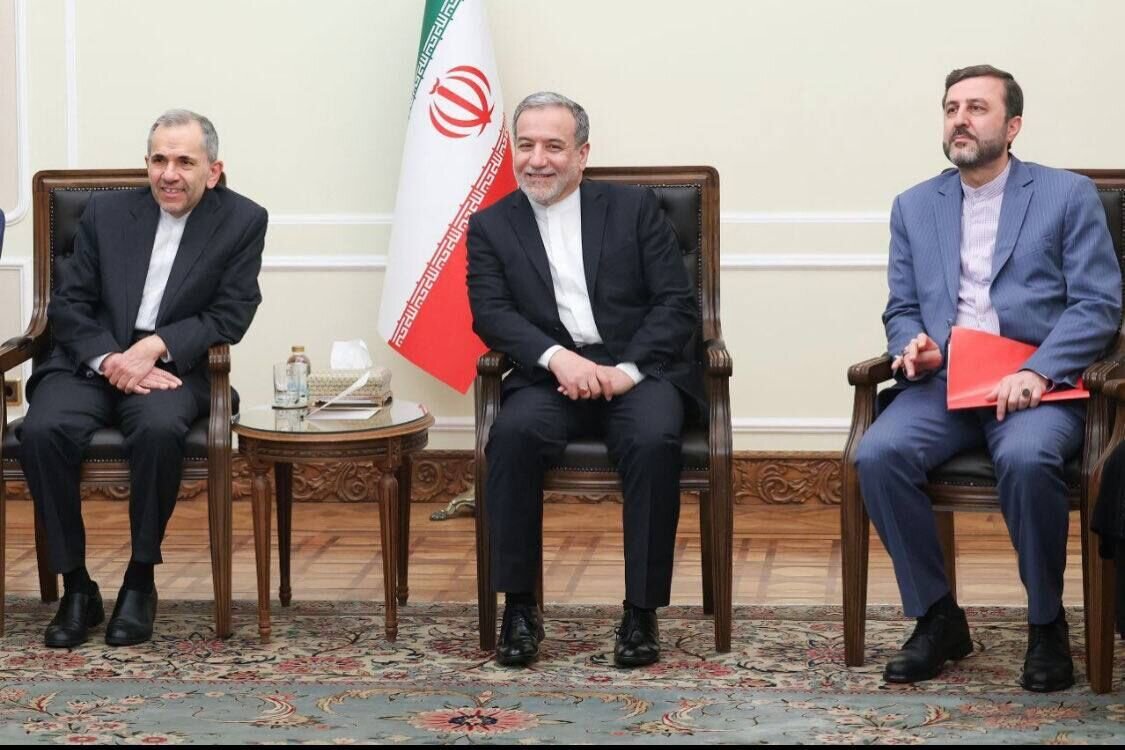Regional countries endorse diplomatic path as Iran, U.S. engage in indirect talks in Muscat

TEHRAN – The launch of indirect nuclear negotiations between Iran and the United States in the Omani capital has drawn widespread praise from regional powers, who hailed the diplomatic initiative as a constructive step toward de-escalation and long-term regional stability.
The first round of high-stakes talks took place on Saturday in Muscat, facilitated by Omani Foreign Minister Badr bin Hamad Al Busaidi, with Iran’s delegation led by Foreign Minister Abbas Araghchi and the United States represented by special regional envoy Steve Witkoff. After four rounds of message exchanges in what participants described as a “calm and respectful environment,” both sides agreed to reconvene next Saturday, calling the initial discussions “constructive.”
Persian Gulf Cooperation Council welcomes talks
Jassim Mohammed al-Budaiwi, Secretary-General of the Persian Gulf Cooperation Council (GCC), commended Oman’s hosting of the dialogue, calling it a “wise approach” to fostering regional peace. In a statement published on the GCC’s official website, Budaiwi said the move reflects Muscat’s longstanding role in promoting dialogue and building bridges between nations.
“The GCC countries, through their solid international partnerships, continue to work toward peaceful solutions, regional stability, and global security,” he emphasized. Budaiwi also voiced hope that the talks would open new avenues for cooperation between Tehran and Washington, benefiting the broader region.
Arab states echo support toward diplomatic path
Saudi Arabia, Kuwait, Qatar, Bahrain, Egypt, and Iraq all issued statements welcoming the talks and endorsing the diplomatic route as the preferred means to resolve long-standing tensions.
Riyadh, through a statement by its Ministry of Foreign Affairs, expressed strong support for Oman’s mediation and the ongoing negotiations. It reiterated its belief in dialogue as the key to addressing both regional and international disputes and expressed hope that the outcomes of the Tehran-Washington engagement would contribute to peace and collective regional efforts.
Kuwait similarly praised Oman’s diplomatic role and expressed optimism that the negotiations would promote peace and stability. Its Foreign Ministry affirmed Kuwait’s commitment to dialogue and peaceful conflict resolution, calling the move a “positive step forward.”
Qatar highlighted the “positive spirit” that defined the talks and lauded both Iran and the U.S. for their constructive tone. Doha reaffirmed its full support for diplomacy, calling it central to ensuring peace, development, and security in the region.
The Iraqi Foreign Ministry emphasized its consistent stance in favor of negotiated solutions and welcomed what it called “positive indicators” from the first round of the dialogue. Baghdad expressed optimism that the Muscat talks would reduce tensions and help build trust between Iran and the United States.
Bahrain echoed these sentiments, praising Oman’s efforts and calling for continued peaceful engagement. Manama affirmed its support for initiatives aimed at resolving disputes through dialogue, emphasizing the importance of diplomacy in fostering regional and international peace.
Egypt’s Foreign Ministry issued one of the strongest endorsements of Oman’s mediation, calling it both “vital and constructive.” Cairo emphasized that political solutions—not military confrontation—are the only path forward in a region fraught with crises.
“The Sultanate’s role is essential in preventing the region from sliding into broader conflict,” the ministry said, while also commending the cooperative posture taken by both Iran and the U.S. Egypt expressed hope that the talks would lead not only to a bilateral understanding but also to a broader climate of calm—particularly in the Gaza Strip, where tensions remain high.
Iran’s chief negotiator, Abbas Araghchi, stated ahead of the session that Tehran was offering diplomacy a “sincere opportunity” to resolve outstanding nuclear issues and achieve a lifting of sanctions, while also cautioning against prolonged negotiations.
Leave a Comment